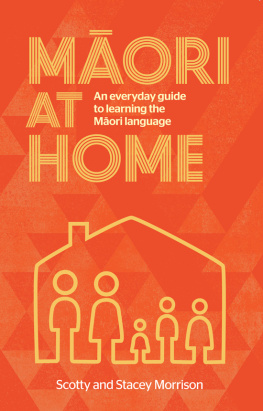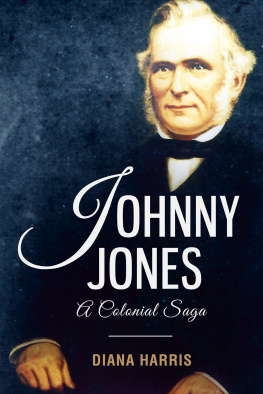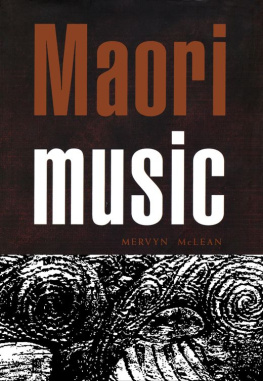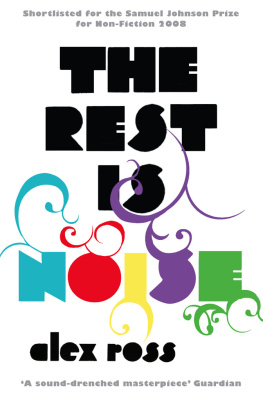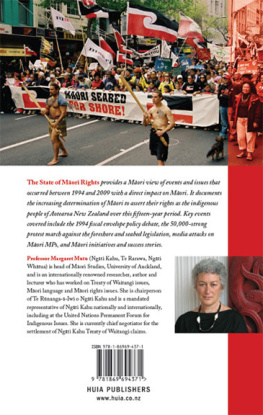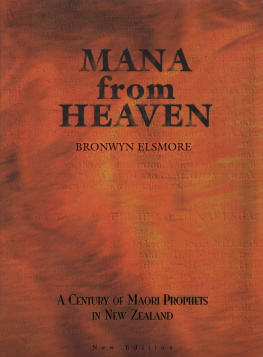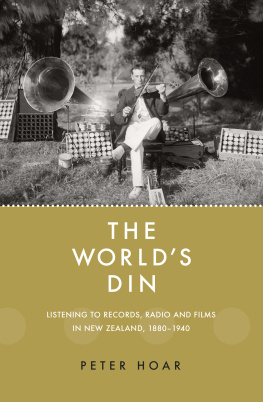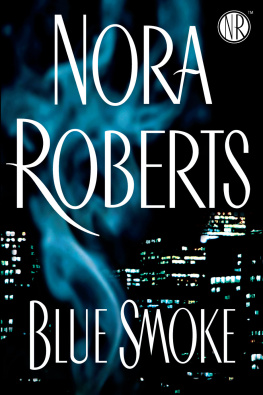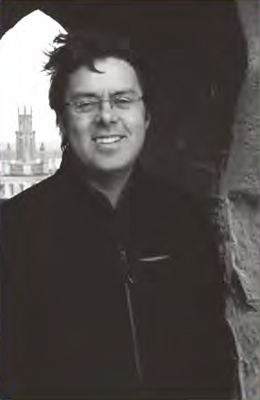
Chris Bourke is a writer, journalist, editor and radio producer. He has been staff writer and arts and books editor at the New Zealand Listener, editor of the music magazines Rip It Up and Real Groove, producer of Radio New Zealands Saturday Morning programme and many documentaries, and author of the biography of Crowded House, Something So Strong (Pan Macmillan, 1997), described by the Australian Book Review as a book by which writing about popular music in Australasia will be measured for years to come. Bourke began Blue Smoke as the 2006 research fellow at New Zealands National Library, and wrote much of it in 2008 while writer-in-residence at the University of Waikato. He has a degree in music history from Victoria University of Wellington.
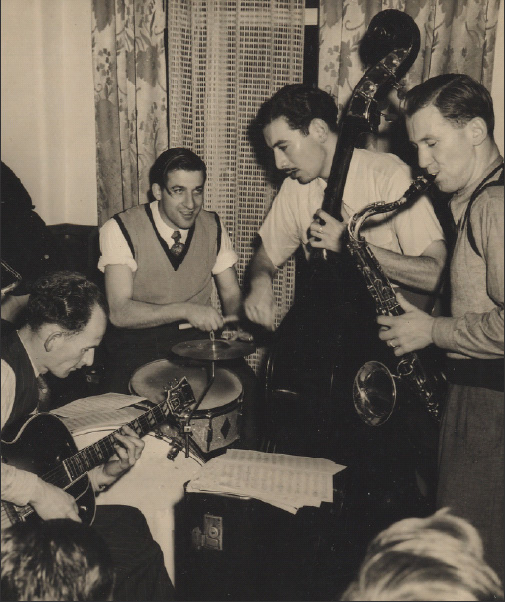
BLUE SMOKE
THE LOST DAWN OF NEW ZEALAND POPULAR MUSIC 19181964
CHRIS BOURKE

For Claire, Lynn and Rosemary, for music and memories.
First published 2010
This ebook edition 2013
Auckland University Press
University of Auckland
Private Bag 92019
Auckland 1142, New Zealand
www.press.auckland.ac.nz
www.bluesmoke.net.nz
Chris Bourke
eISBN 978 1 86940 794 0
National Library of New Zealand Cataloguing-in-Publication Data
Blue smoke : the lost dawn of New Zealand popular music, 19181964 / Chris Bourke.
Includes bibliographical references and index.
eISBN 978-1-86940-794-0
1. Popular musicNew ZealandHistory and criticism. I. Title. 781.630993dc 22
This book is copyright. Apart from fair dealing for the purpose of private study, research, criticism or review, as permitted under the Copyright Act, no part may be reproduced by any process without prior permission of the publisher.
Publication is kindly assisted by the International Association of Music Libraries Archives and Documentation Centres (New Zealand), the Lilburn Trust and

The author offers grateful thanks to the National Library of New Zealand for a research fellowship in 2006 and the University of Waikato for its Writer in Residence award in 2008, which enabled Blue Smoke to be completed.
Brief passages of this book have appeared in the authors contributions to The Dictionary of New Zealand Biography, the New Zealand Listener and the Turnbull Library Record.
Picture research by the author.
Thanks are due to the following publishers for permission to quote from songs still in copyright: Maori Battalion Marching Song by Anania Amohau and J. Thompson (Musical Import Co. Ltd); Tea at Te Kuiti by Kenneth Stopford Avery (Mushroom Music Pty Ltd); Monde Marie by Peter Cape (Gladwen McIntyre); Rocky Mountain Lullaby by Rex Franklin (Rex Franklin); Land of the Long White Cloud by Sam Freedman and Sam Karetu, Haere Mai and Ill Serenade a Star by Sam Freedman; Love in a Fowl House by Garner Wayne (Viking Seven Seas NZ Ltd, P.O. Box 152, Paraparaumu); Poi Poi Twist by Rim D. Paul (Rimini D. Paul); Tomo Mai by Henare Waitoa (Waitoa family); My Old Mans an All Black by Gerald Kereti Merito (Essex Music Australia Pty Ltd).
Previous page: Rehearsing in Auckland in the early 1940s are four members of Cliff Russells Civic Wintergarden big band. From left: guitarist Gordon Hall, drummer Bruce McDonald, bass player Thomson Yandall and saxophonist Niel Randrup. Bennie Gunn collection
CONTENTS
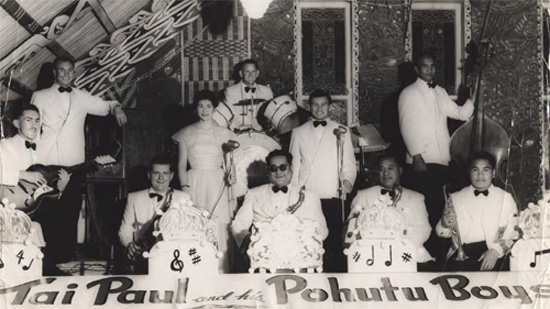
Tai Paul and his Pohutu Boys were Rotoruas leading dance band in the 1950s. Pictured at their regular dance in the Ohinemutu meeting house of Tamatekapua, c. 1953, are (L-R) Pat Montague, guitar; Vic Bartholomew, piano; Alf Brown, saxophone; Margaret Henderson, vocalist; Don McKenzie, drums; Tai Paul, saxophone; Angus Douglas, vocalist and guitar; Teddy Walker, saxophone; Oscar Maika, bass; and Napi Walker, trumpet. John Scott Studios, Rotorua
PREFACE
Blue Smoke is a history of New Zealand popular music, in the days before rocknroll. I felt there was a gap, not in the market but in our understanding: how we got from Alfred Hills Waiata Poi to Rim D. Pauls Poi Poi Twist seemed to be a mystery.
For my purposes, popular music is a genre, not a description. Also popular in this period the mid-twentieth century were brass bands, bagpipers and choirs. But they are hardly mentioned in this book, which looks at the evolution of modern popular music as an industry: the changes in musical fashions, technology and social mores. This popular music keeps evolving, and is usually heavily affected by overseas influences. Songs are the currency, although during this period almost all were written by foreigners. But this era leads to a time when our own original songs become commonplace, rather than restricted to hobbyists or nationalistic folk singers.
Popular music is not pure: there is no holy grail of authenticity. It has an element of the marketplace that will never satisfy the folklorists in the field, though some songs become so popular that they almost become folk songs. The working title of this book, Blue Smoke Gets in Your Eyes, seemed to capture both worlds (but would have created a new mondegreen: a misheard lyric). That and the final title referred to Blue Smoke, the song that was pivotal to the creation of a recording industry in New Zealand. The segue to Jerome Kerns song acknowledged the overwhelming international presence. Popular music is something old, new, borrowed and blue and eventually something ours.
The period covered shows a shift in influence, from Britain to America. Technological changes were also crucial: new styles arrived quickly through radio and records, and these developments are examined for their effects on music-making. With each new style of music comes a reaction, from a musical or civic establishment disturbed by possible shifts in the social order. But this book is a music history before it is a social or cultural history. It concentrates on the people who made music and their connections, the changes to the way the music sounded, how it was created and enjoyed. I wanted to describe how the baton keeps getting passed on, and the characters, locations and innovations that shaped our own musical world. For much of this period, jazz was at its peak as a form of popular music, breaking out of the dance halls. But the book needed to be more than a history of jazz in New Zealand: it needed to explore the other genres that became part of the popular music industry. Country, Hawaiian and middle-of-the-road pop are all part of the mix before and during the arrival of rocknroll.
The Howard Morrison Quartet in particular needed more extensive treatment than it has (appropriately) received in other music histories. Otherwise, the years since Johnny Devlin brought the news from Gonville have been well covered, by John Dix in Stranded in Paradise and in many works that seminal book has inspired. The colonial period has also been discussed, by John Mansfield Thomson and Angela Annabell and others. Musical theatre has been explained by Peter Downes and Peter Harcourt, and Maori music has been the lifes work of Mervyn McLean.
Next page


